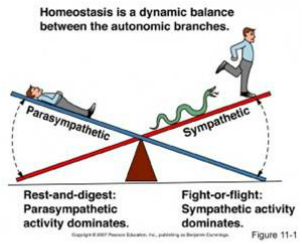On the Internet, everybody seems to have a voice and everyone seems to be an expert on everything including postprandial somnolence, or, in layman’s terms, “food coma.” I found articles online attributing food coma to factors like increased tryptophan intake, less blood going to the brain, alkaline tide, reactive hypoglycemia, and circadian rhythm—much of it more or less hearsay than fact. So instead of relying on scuttlebutt, I figured I’d get my butt in gear and do some digging of my own.
The first study I came across was looking to debunk the belief that food coma is caused by redistribution of blood flow from the brain to the gut. The researchers agreed that blood perfusion from muscles does occur during exercise, but blood perfusion does not occur during postprandial state. Their conclusion is that that sleepiness after meals results from release of melatonin and orexins—neurotransmitters that regulate wakefulness and appetite, which have modulating effect of the sleep center in the hypothalamus.
The second study I reviewed looked at tryptophan and its effect on serotonin, which causes postprandial sleepiness. When comparing high carb meals vs. high fat meals, they found that high fat meals stimulate more tryptophan release but did not induce increased sleepiness. The researchers—btw these guys were brilliant Koreans—concluded that tryptophan was not a principle determinant in postprandial sleepiness. Instead similar to the first study, they concluded that sleepiness might be triggered by interplay of secreted gut neuropeptides, vagus nerve activation, and stimulation of lateral hypothalamic area. In other words, they are saying satiety signals may trigger the sleep centers of the brain provoking postprandial somnolence.
To sum up: what causes both Gingeroni and I to hybernate? The answer lies in the workings of our parasympathetic and sympathetic systems—autonomous nervous systems responsible for unconscious actions. In essence, the parasympathetic system tells our body to put a snooze on our brain and focus on digestion, and feed our Hans and Franz (muscles).
So, I’ll see you next time, girly man. And that means you, Will.


0 responses to “Postprandial Somnolence, English please!”